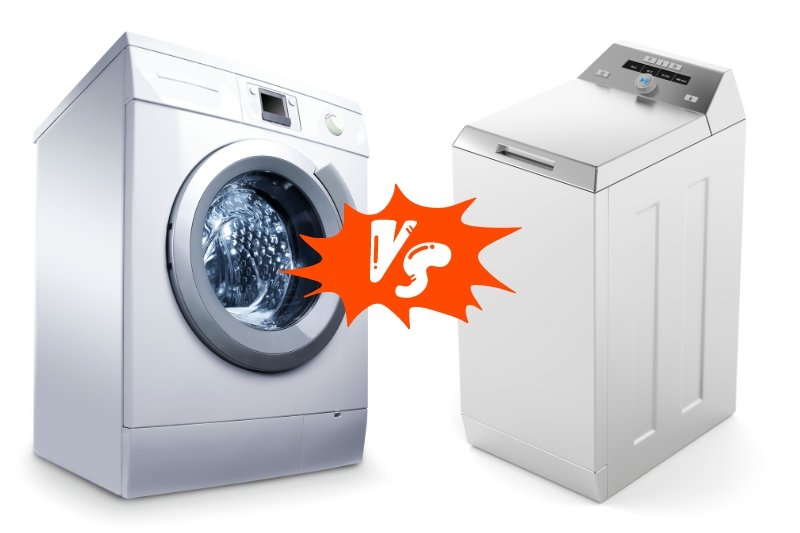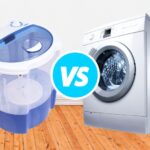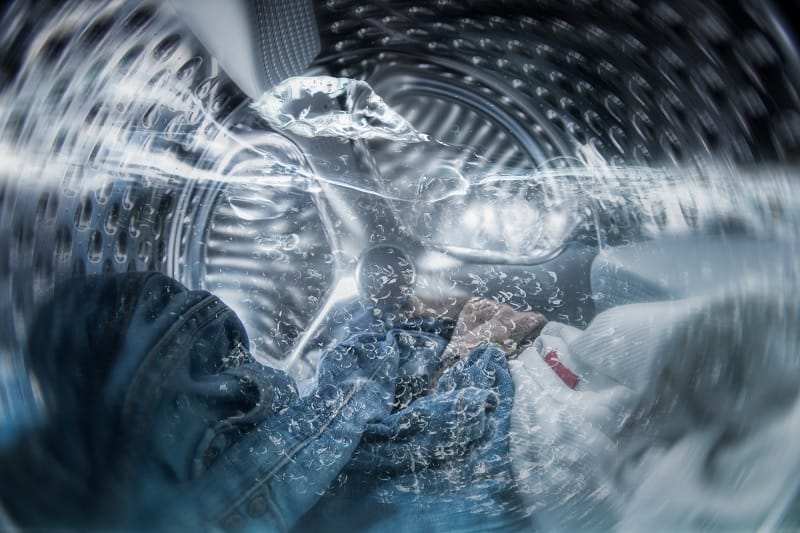When searching for a new washing machine, the wide variety of choices can soon become overwhelming. It’s quite an expensive purchase, so you want to know you’ve made the right choice.
The vast majority of washing machines on the market in the UK are front loaders, but there are some top loader machines available too. In the USA, the opposite is true, with top loaders being much more common.
Unsurprisingly, both types of washing machine has its own particular pros and cons, as well as important things to know if you’re considering buying one.
It can be a confusing topic, so we have compiled a comprehensive guide on the differences between these machines.
After reading this article, you will know all you need to make an informed decision about which type of washing machine is best.
Front-Loading Washing Machines
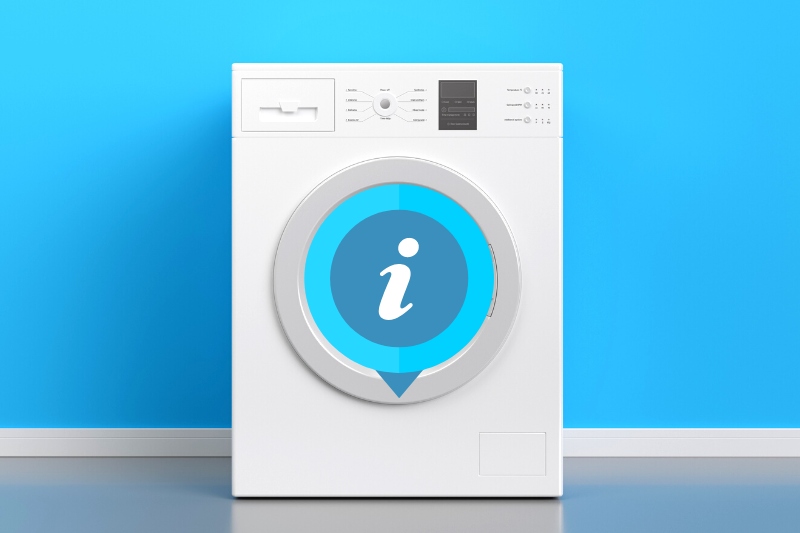
Front-loading washing machines are as they sound: They require you to load the drum through a door on the front of the applicant.
This means they can be stacked with a tumble dryer to help save space in your home.
Advantages
Front-loading machines use gravity to wash your clothes, meaning less water is used per cycle.
Rather than the whole drum filling with water, it is only filled part of the way full. The drum rotates so that the clothes rise above the waterline and then drop back into it.
The reduced water usage also means less that water is heated during a cycle, reducing energy bills and making these washers more sustainable.
Using gravity to clean your laundry is less likely to cause damage to your clothing and means these washers are suitable for large items (e.g., pillows or duvets) as they will not be fully submerged. The way the drum works also allows for faster spin speeds, therefore removing more water from the fabric at the end of a cycle.
Disadvantages
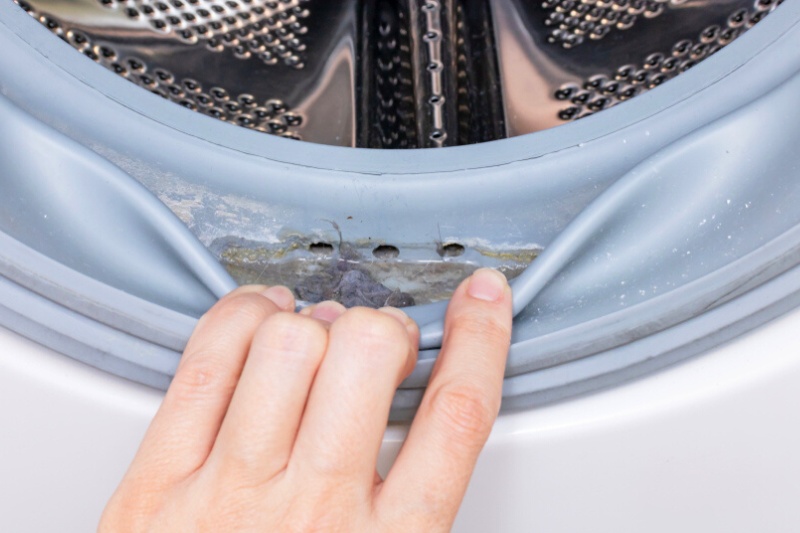
The main issue with these machines is that they are prone to mould growth in the door gasket.
Because of this, front-loading washers typically need to be kept in a well-ventilated area. You must also leave the door ajar between wash cycles and clean your machine more frequently.
Moreover, to prevent water leakage, the door on these machines becomes locked when a wash cycle is in progress.
Unfortunately, this means you usually cannot open the door mid-cycle to add extra laundry or detergent to the drum like you can with a top loader.
This being said, there are some new models with AddWash technology. These machines are more expensive but allow you to access the drum while running.
Summary of front loaders
Pros
- More sustainable
- Can handle large items
- Gentler wash cycles
- Faster spin speeds
- Can be stacked to save space
Cons
- Can’t add to the drum mid-cycle
- Are prone to mould growth
- More expensive
Top-Loading Washing Machines
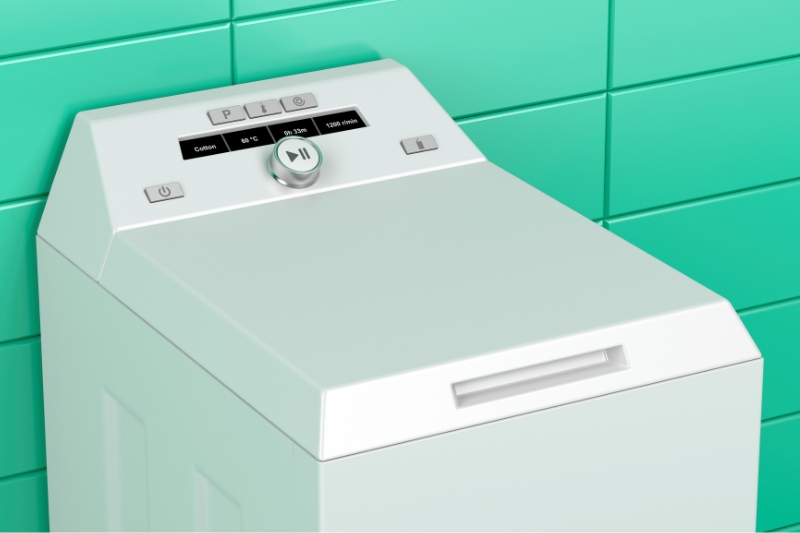
Top-loading washing machines are those that require you to load your laundry, detergent, and fabric softener into the drum via a door on top of the washer.
This type of washing machine is much less common in the UK, but there are still plenty of options available if it is the design you prefer.
Advantages
Because these machines don’t have a door on the front, they tend to have a taller and sleeker design than front loader machines.
This makes these washers very accessible, as you don’t have to bend down to reach the drum. However, it does mean that they cannot be stacked with a dryer to save space in the home.
The location of the washer door also means that additional items of clothing can be added to the drum during a wash cycle without causing any water leakage.
Plus, the gasket is much less prone to mould growth as excess water will settle in the bottom of the machine rather than gathering around the door.
Disadvantages
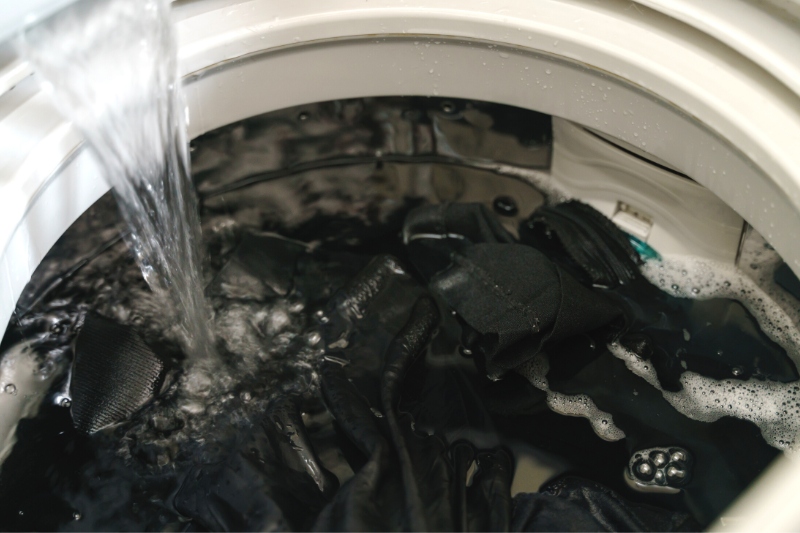
Rather than using gravity, top-loading washing machines tend to use an agitator to clean clothes. This is a post that is located in the centre of the drum.
During a wash cycle, your laundry is swirled around this post to create friction and remove dirt.
Unfortunately, this uses a lot of water, can cause more wear and tear on your clothes, and means the machine’s maximum spin speed is much lower.
Some more recent top loaders use an impeller instead of an agitator. This type of rotor increases the water pressure in the machine, which then cleans your clothes.
These high-efficiency top loaders are more expensive, but they also have quicker wash cycles, bigger drums, superior cleaning abilities, and use less water.
Summary of top-loading washing machines
Pros
- Easier to load and unload
- Can add to the drum mid-cycle
- Less prone to mould growth
- Faster cycle times
- Sleeker design
- Cheaper
Cons
- Increased water usage
- Can damage clothes
- Slower spin speeds
- Not suitable for larger items
Which Type of Washing Machine is Best?
Front-loading machines are more common in the UK, so you will have a broader range to choose from if you want one of those, but top loaders are a great fit for some people.
Before making your final decision, we recommend considering the following factors:
Capacity
Winner: Front loaders
Large families will benefit from owning a washing machine with a larger drum capacity, while a one-person household will be fine with a smaller one.
Both front loaders and top loaders can come in a variety of sizes, so it is best to check the capacity before you buy.
Since the choice of top loaders is very limited in the UK, it’s easier to find front-loading washing machines with big capacities of 9 or 10 kg.
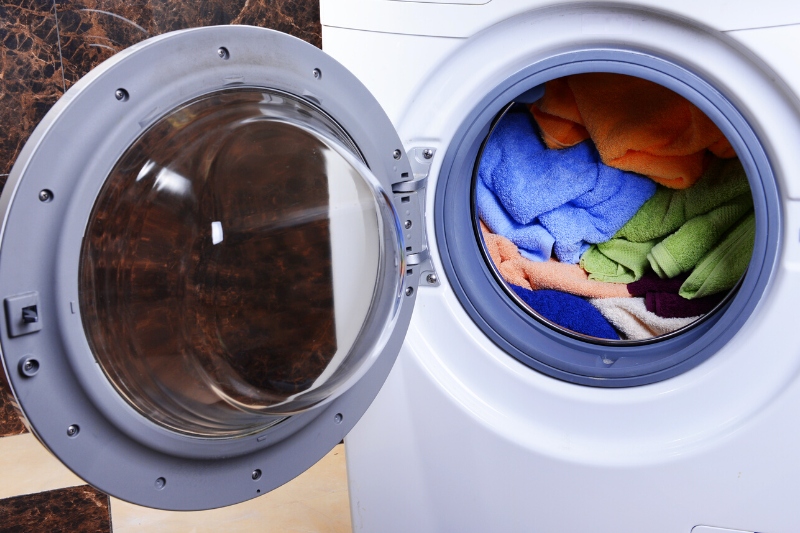
Installation types available
Winner: Front loader
Most washing machines are freestanding, but you can invest in an integrated washer if desired. These are built into a unit so that they are hidden from view.
If you want your machine to be integrated, be aware that these are more expensive, and you will need to go for a front-loading machine.
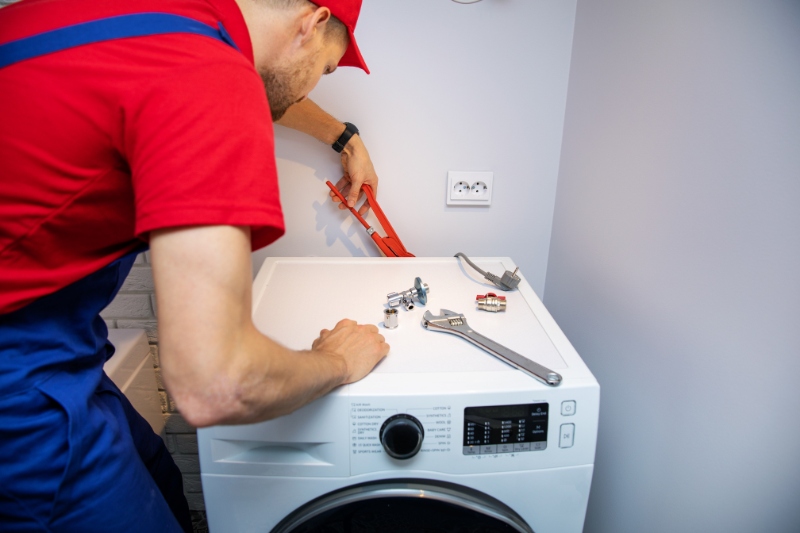
Energy usage
Winner: Front loader
Washing machines can be expensive to run, especially if you find yourself doing multiple loads a week.
If you want to reduce your energy bill, you’re better off going for a front-loading machine as they are much more water and energy efficient.
You can also opt for a high-efficiency top loader, but it will still be slightly more expensive to run.
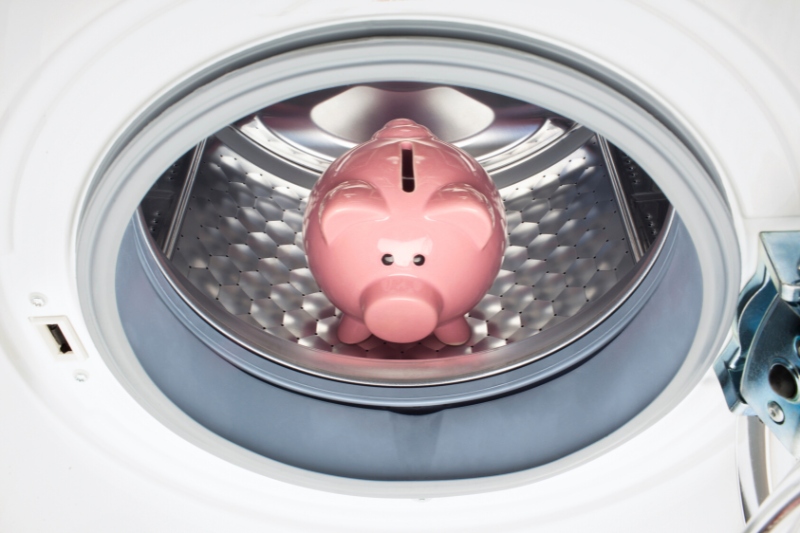
Ease of use
Winner: Top loader
When you buy a washing machine, you want it to be as easy to use as possible.
Top-loading machines have better ease of access to the drum, making them an excellent choice for those with joint and mobility issues.
However, you could always install a front loader in an elevated position so that less bending is required.
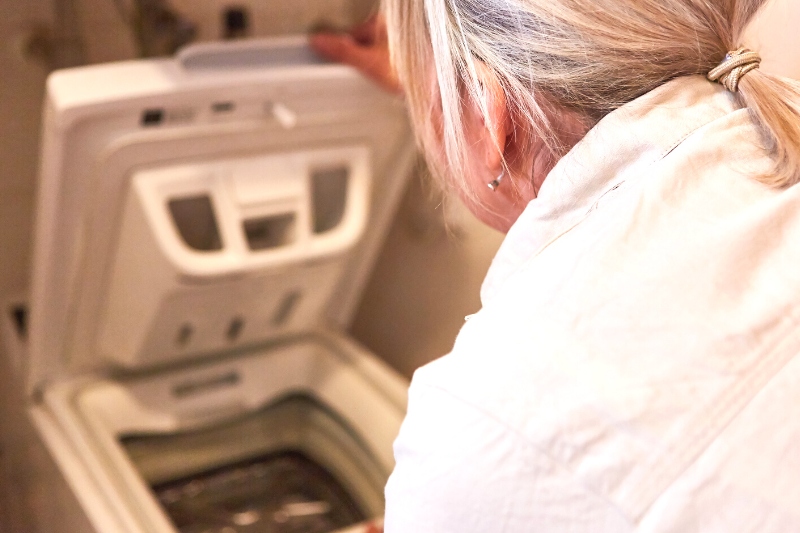
Budget
Winner: Top loader
Washing machines can be quite expensive, especially when you’re looking to buy one that includes special features.
In general, top-loading machines tend to be cheaper than front-loading ones, but there are budget options for both available.
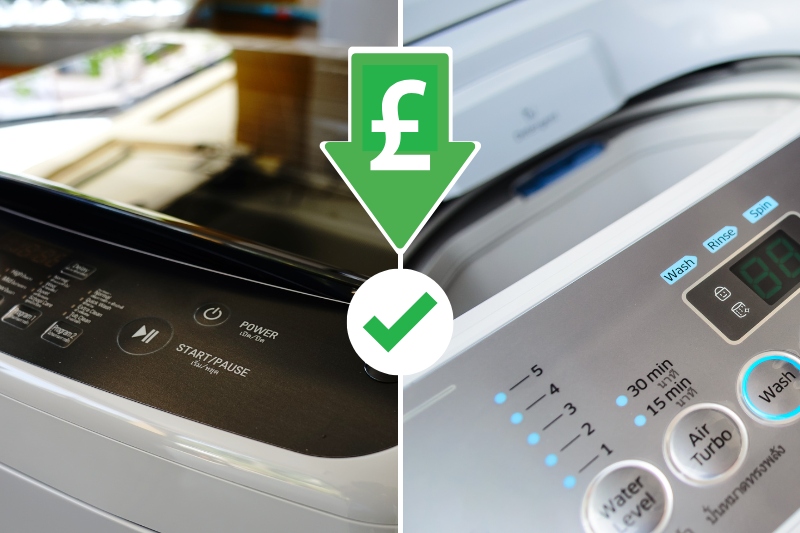
Noise level
Winner: Front loader
Some washers are noisier than others. Top-loading machines make more noise during the wash cycle, but front loaders can be equally loud during the spin cycle.
In general, front loaders tend to be a bit quieter than top loaders.
If a quiet washing machine is important to you, we suggest you always check the noise level in the product description before buying.
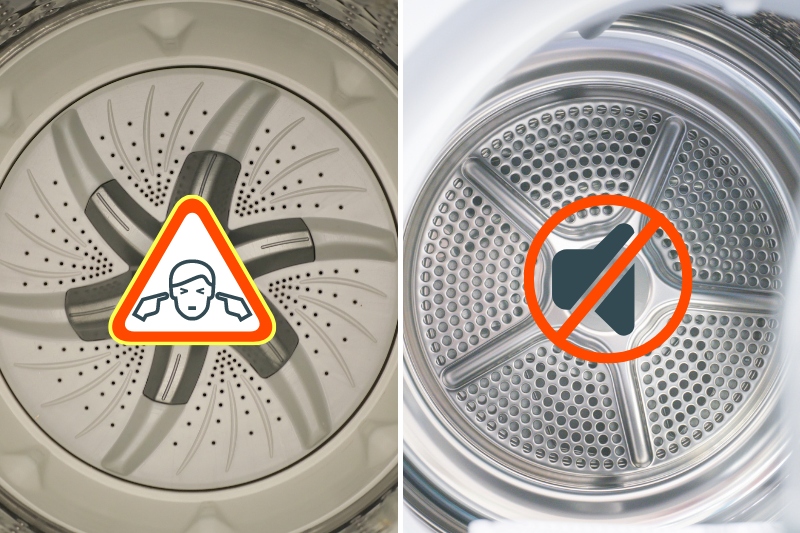
Conclusion
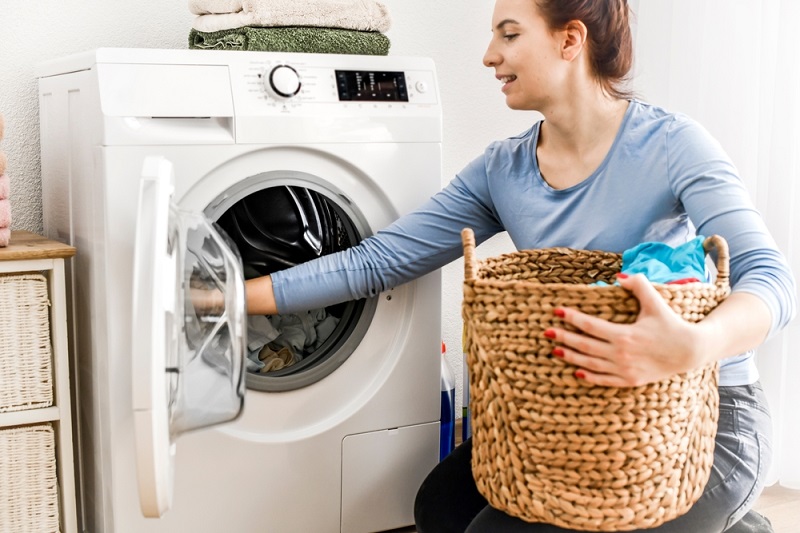
On most metrics, we believe front loaders come out on top. This is especially true if you’re in the UK where you’ll have a lot more choice of front loaders compared to top loaders.
Front-loading washing machines tend to use water and energy more efficiently, meaning you’ll have lower bills. They are also quieter on average, and come in a large range of capacities, and can be either integrated or freestanding.
Top-loading washing machines are a good choice for people who find it hard to bend down to use a front-loading machine. They’re also a bit cheaper on average. However, there are lots of budget front-loading machines available that are cheaper than the average top-loading model.

Hannah has a passion for cleaning. She worked her way around Australia by cleaning hostels in exchange for free accommodation and used her cleaning skills to bag a job as a chalet host for a luxury ski company in France.
